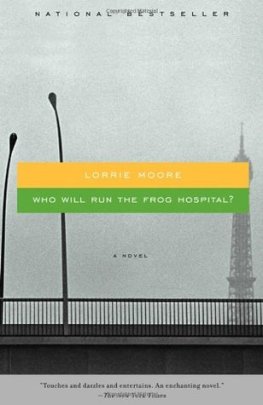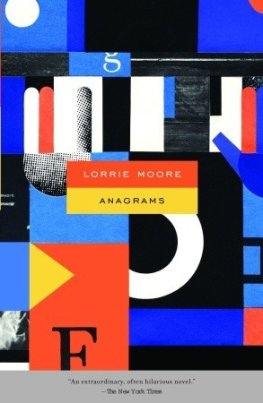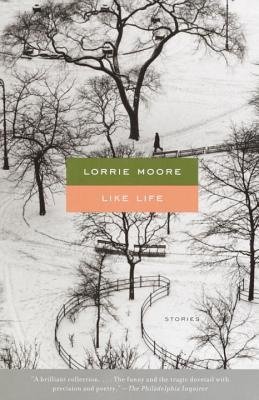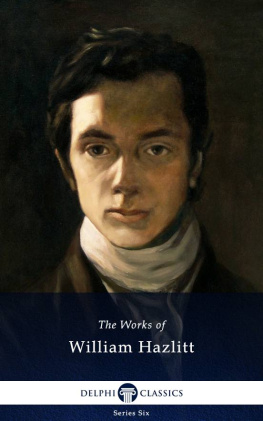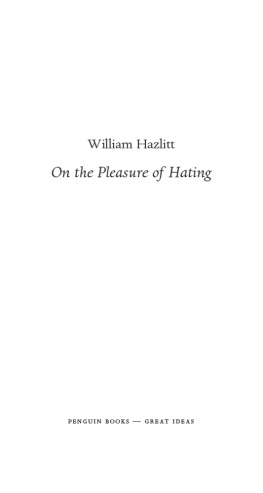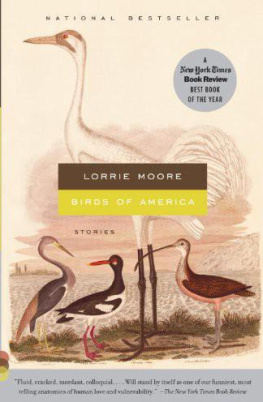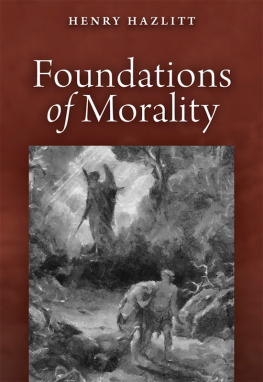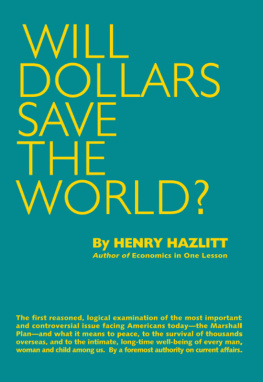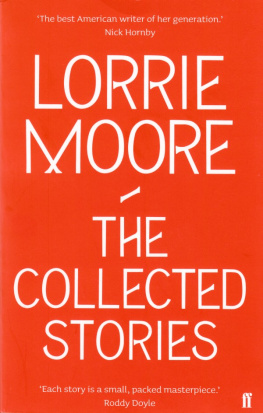Editors Note
I once told a close friend she was the one person I knew most like a character in a Haruki Murakami novel. I even inscribed that inside the copy of 1Q84 I gave her. I dont think I had a particular character in mindit was more a generalized feeling, a pastiche of traits Id picked up on from several different Murakami women. The friend is charming, outgoing, and attractive, with cutely misshapen ears, suggesting exactly the sort of physiognomic detail one would expect from Murakami. Uncommonly perceptive and droll, she believes in spirit animals and has a knack for just, poofsuddenly disappearing.
(And her family comes from Finland, which has always felt to me the other country most like Japan. Something to do with perceived similarities in the language, comparable suicide rates, and the belief that rocks have spirits.)
Maybe I intended it as flattery. Which is regrettable I now realize, given that if there is one thing even Murakamis admirers have criticized him for, its his female characters. That in many instances they are hard to distinguish from male fantasies. (Or that they often have an enigmatic habit of simply disappearing.)
Of course, all this is more about my identification with male Murakami protagonists than my friends resemblance to his fictive women. And it shows how susceptible our interior worlds are to the art that speaks most deeply to us. Back in 1994, I decided to move to Japan immediately after finishing Murakamis Wild Sheep Chase, even though the novel could hardly be described as a realistic portrait of contemporary Japan. What I was really doing was buying into Murakamis world.
Im not sure what the above has to do with this edition of Hazlitt, other than the fact I read an advance copy of Colorless Tsukuru Tazaki and His Years of PilgrimageMurakamis latest novelwhile we were putting it together. (Tsukuru, by the way, has a long section that occurs in Finland.) This time I read Murakami self-consciously, wondering what it was about his unique brand of surrealist existentialism, overwhelmingly preoccupied with themes of loneliness, that resonates with me.
Likewise, Im tempted to wonder what the contents of this issue say about the inner worlds of its editors, what themes are lining its guts like bacteria. Because it felt like there was something. Senior Editor Alex summed it up as grim: Ebola; suicide; the horror of adolescent embarrassment; fiction entitled The End and Blood-Red Beard; Molotov cocktail still lifes; and, from Burma, The Dead Boy. I suppose thats our idea of a summer issue.
Hazlitt No. 2 Summer 2014
The Trial of Justin B. (with Apologies to Franz Kafka)
CHRIS RANDLE
Two Vessels
TAO LIN
When Do We Reach Peak Embarrassment?
NICHOLAS HUNE-BROWN
Shelf Esteem: Heather ONeill Says Novels Are Where the Lonely People Go
CHRIS FREY
IMAGE by GUILLAUME SIMONEAU
Natures Most Perfect Killing Machine
LEIGH COWART
IMAGE by JULIA DICKENS
Let Them Eat Steak: Arts Funding US-Style
LINDA BESNER
ART by KRISTIN CAMMERMEYER
A Dead Boy
TYLER STEIM
The End
FERNANDA TORRES
Blood-Drenched Beard
DANIEL GALERA
The Problem of Suicide and How We Talk About It
ALEXANDRA KIMBALL
IMAGE by MARMAN AND BORINS
A Man Mentioned in an Essay
MARY JO BANG
Eating the Heart of Richard Maxwell
NAOMI SKWARNA
Julia Dault: Beauty at a Complicated Angle
SARAH NICOLE PRICKETT
ART by JULIA DAULT
The Black Notes of Owen Pallett
CHRIS RANDLE
How to Be a Woman
NAOMI SKWARNA
Sincerely, Hearse Curtains
DAVID HERNANDEZ
Russian Fairytales, Terrifying and Otherwise
TOM JOKINEN
Xu Bing: Ulysses by Emoticon
ALAN JONES
The Recommender
HAZLITT STAFF
Unfuck Yourself: Airplane Phone Etiquette
SCAACHI KOUL
The Life They Planned For You
MICHAEL PROKOPOW
IMAGE by CHRISTOPH GIELEN
The Trial of Justin B. (With Apologies to Franz Kafka)
CHRIS RANDLE
The lawyers escorted Justin B. to a small windowless room. Everything there was made of wood, walls, ceiling, and floor, hammered clumsily into place. The television was also made of wood. As B. looked around this wretched chamber, his pompadour wilted. One of the lawyers leaned over the desk where he sat and regarded him evenly. Do you know Selena Gomez? he asked. B. did not answer. The lawyer went on for some time, not even waiting for a response: Do you know Selena Gomez? Do you know Selena Gomez? B., who suffered from an anxious disposition, felt this was all quite impossible. Finally he raised a trembling hand, and pleaded: Dontdont ask me. Please dont ask dont ask me about her again.
The lawyer paused, tugging on his neatly trimmed beard. I am a trustee of this court, he offered mildly, and we all know you have recognized its authority. B. sank into his chair, eyes closed, and gathered his floral Dries Van Noten jacket about him. Indeed, to deny that would only confirm your provisionally established guilt. Now, the lawyer continued, do you remember being in Australia? Shaking, B. stammered: II dont know if Ive been to Australia. Have I been to Australia? He flung his strangely buff form across the desk in a heap, growing more and more agitated. He could not recall visiting the nation at issue, but he felt that he had long dwelt in an abstracted, metaphysical Australia, a dreamtime, as it were. B. lifted up a finger with abject regret and asked: What kind of question is that?
Nobody managed to clarify. One of the strange men palpated his shoulder in a manner B. imagined to be meant as reassuring. It appeared that this fellow had been appointed his advocate by an unseen power. Do you have a record? he asked B. Have you ever been, that is, disciplined? A rival jurist took exception to this inquiry, snorting: Is he your son? Slumped flat, B. could only protest: I think my lawyer is asking a question. I think my lawyer is asking a question. I think my lawyer is asking a question. I think my lawyer is asking a question. I think my lawyer is asking a question.
Another lawyer produced several indistinct photos and spread them gravely next to B.s head, as if handling ecclesiastical documents. Your actions are a matter of public record, he remarked. It is known that you were present while gentlemen of the press were assaulted. You can see the records for yourself. B. craned his neck and cast a flickering eye over the offered evidence. This is a photograph? This is a photograph? You said its a photograph. You said look at the photograph. Is this a photograph? Is this a photograph? He looked away and then back again. Yes.
The inquisitor continued as if B. had said nothing at all, tapping a finger across the incriminating blur. Were you not seen at the towns most notorious carriage-racing route, possessing certain circumscribed substances? We can produce several witnesses who suggest this was so. And you also lie under suspicion for the eggs hurled at Count Grimslocks castle. But this is gossip, almost, compared to the other charges you face. They are unspeakable crimes, and so I will not speak of them. Everything shall emerge at the trial, of course.
At that moment a revelation arose within Justin B., and he swivelled back unsteadily upon his chair. At once, he knew the perpetrator. It was someone very much like himself, alike in abs and mien, devoted not to courtly music but pursuing the most extreme and indescribable depravity. Furred all over instead of on the upper lip alone, its appearance combined the childish and the degenerate. Only now did B. begin to notice the awful rooms heat, and sweat dewed his much remarked-upon forehead. The lawyers drew back an inch or two as he approached panic. Oh, Im so sorry, B. moaned, fluttering a hand around his lips. Theres been a mistake. Dont you see? It looks like me, it wasnt me! It wasit was Swaggy the Mouse! Gazing distraught into disbelief, he wished that the usher were here. But the usher was dead.


